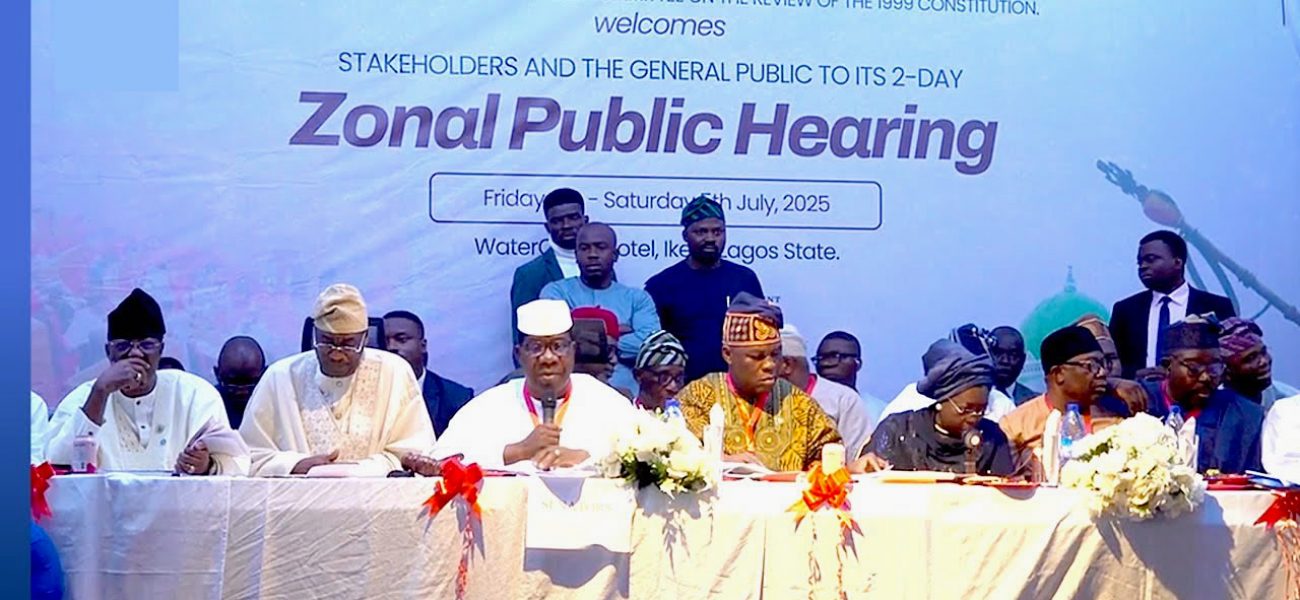Nigeria’s constitutional review process is charging ahead, and while recurring core issues like local government autonomy, electoral reform, judicial reform, state police, etc. remain in focus, a new priority is riding high on the agenda: getting more women into elective positions.
The National Assembly’s zonal public hearings are being wrapped up across all six geopolitical zones, marking a key milestone in the ongoing review process. One proposal, in particular, is generating real buzz – the Special Seats Bill, aimed at increasing women’s representation in the legislature.
If the name sounds familiar, it’s because it is. The bill made an appearance in the preceding 9th National Assembly but didn’t make it over the finish line. It was voted against by legislators in March 2022. Now it’s back on the agenda, and the mood feels different. With backing from women and civil society groups, development partners, and even pockets of political leadership, the conversation is shifting from “why?” to “why not?”
The idea is simple: create additional seats in the National Assembly and State Assemblies to be contested only by women for a period. It’s a temporary fix, but one designed to tackle a long-standing problem i.e. Nigeria’s staggeringly low number of elected women. Right now, only 20 out of 469 federal lawmakers are women. That’s less than 5%. In a country where women make up more than half the population, that’s a glaring mismatch. The bill also responds to the hard truth that, in most political parties, women face steep odds at becoming candidates. They are often sidelined by nomination fees, internal politics, and the reluctance of male power brokers to back female contenders for existing seats.
At the public hearings, women’s groups showed up and spoke up. From North to South, the message was loud and clear: representation matters. Not just for fairness, but for stronger policies, more inclusive governance, and better outcomes for everyone.
Supporters of the bill argue it aligns squarely with Nigeria’s constitution and national gender policy. They also point to the built-in review clause – a smart feature that calls for the special seats to be reassessed after four election cycles (about 16 years). It’s not a forever fix. It’s a bridge to get more women into the room now, while the deeper work of reforming party politics and leveling the playing field continues. It also represents a pathway toward a future where women can compete and win on equal footing, without needing special provisions to be seen and heard.
The bill defines the women-only constituencies. Each state becomes a single constituency at the federal level to elect one woman to the National Assembly, while the three senatorial districts in each state would each produce one woman at the state level for the State Assemblies. If the bill is successful, INEC is expected to have an operational implementing role: aligning the elections with the general polls, designing ballots, and educating voters, among others. One area that may require further clarity is the nominations process. While the Electoral Act covers how parties nominate candidates, it doesn’t speak to gender-specific arrangements. If the bill passes, INEC may need to issue fresh guidelines to support the nomination and conduct of these elections. And advocates are clear: these seats must be contested by credible women not political placeholders.
Passing any constitutional amendment in Nigeria is no walk in the park. Section 9 of the 1999 Constitution sets a high bar: two-thirds of the National Assembly and 24 state legislatures must say yes. Past efforts have stumbled here, and recent tensions between the Senate and the House over bill concurrence could be a challenge. The support of the President is equally critical because a veto at that stage would derail the entire process.
Fortunately, momentum is building. A national public hearing on proposed constitution amendments is slated for September 2025. If lawmakers can steer through the political headwinds and get this done, it would be a landmark move, not just for women inclusion but for Nigeria’s democracy. Hopefully, this is the moment Nigeria decides that half the population deserves a real stake in political power.

